Giorgia Meloni has just marked her first year as Italy’s prime minister. When elected, she was described as a far-right leader, the most right-wing that Italy has had since Mussolini. So after a year in office, were these labels justified? What kind of leader has she been? And has she done anything to justify the ‘far-right’ label still lazily applied to her?
While running for office, Meloni asked to be judged by her words and policies, not by the fact that as a teenager she had joined Italy’s long disbanded post-fascist party. ‘Usually, Italian politics are somewhat comical,’ Giovanni Orsina of Luiss University in Rome recently admitted. ‘But by Italian standards, we’re in a moment of unusual stability.’ So not, as breathlessly warned, a descent into far-right chaos.
Meloni’s personal approval remains relatively high at 43 per cent. Rishi Sunak would kill for such figures
Let’s start with foreign policy. Many right-wing populists have a weakness for Putin and begrudge backing Ukraine. Meloni has been one of Europe’s most steadfast supporters of Zelensky and imposing sanctions on Russia.
She’s hardly playing to the crowd: Italy is perhaps more sceptical about helping Ukraine than any western country, with just 47 per cent in favour. But Meloni feels this deeply and personally: she’s pro-Nato and unusually Atlanticist in outlook – this is perhaps why Biden invited her to the White House in July. She has held several meetings with British prime minister Rishi Sunak at which they got on extremely well.
During Italy’s election campaign, EU Commission president Ursula von der Leyen notoriously warned Meloni that if she moved things in ‘a difficult direction’ the EU had ‘tools’ to deal with her.
Now, von der Leyen has ended up backing Meloni as she has dominated the conversation on the small boats crisis by persuading EU leaders that Europe must defend Italy, as in doing so it defends itself, and the only way to do that is to stop migrant boat departures from North Africa with cash and by force.
Italy’s migrant crisis, Meloni insisted from the start, is Europe’s migrant crisis. Von der Leyen was quick to agree, re-iterating on a recent trip to Lampedusa with Meloni that it is a ‘European challenge, and it needs a European answer’ and ‘we will decide who comes to the European Union and under what circumstances, and not the smugglers and traffickers’.
Meloni also wants the creation of an EU naval task force to stop migrant departures from north Africa – which could only happen with the agreement of Tunis and Libya. Nearly three quarters of Italians (71 per cent) support the creation of such an EU task force but it has not yet won support from Brussels.
Traditionally, Libya has been the preferred departure point for the people traffickers in the central Mediterranean, even though it is over 300 miles away from Sicily. But for the first time there have been more migrant departures from Tunisia, which is far closer. The country verges on bankruptcy and collapse. The dreams that inspired its Arab Spring a decade ago have disappeared into the Sahara. Its president, Kais Saied, was elected in 2019, suspended democracy in 2021 and now rules by decree.
In July, Meloni spearheaded a deal between the EU and Tunisia by which the latter will receive nearly €1 billion (£872 million) in aid and investment to help stop its collapse and to help stop migrant departures – with €105 million (£91 million) to be paid immediately to equip the Tunisian coastguard to return migrant boats to Tunisia. Von der Leyen oversaw the deal and was present when it was signed in Tunis. This was similar to the deal done in 2016, masterminded by Merkel, whereby Turkey was paid €6 billion (£5.23 billion) by the EU to stop migrant boat departures to Greece. In the case of Turkey, many of those seeking to cross to Greece were genuine refugees from Syria and Afghanistan. In the case of Tunisia and Libya, many come from countries that are not war zones and so are not refugees. The top four countries of origin for migrants to Italy this year, for example, are Guinea, Ivory Coast, Tunisia and Egypt – which are not war zones.
So far this year, 142,000 migrants are known to have arrived in Italy by sea from Tunisia and Libya and it looks like this year will break the record of 181,000 in 2016. That compares to less than 26,000 who have crossed the English Channel to Britain from France in the same time period. Meloni has warned EU leaders that, ‘if Tunisia collapses’ Italy – and thus Europe – risks the arrival by sea of ‘900,000 migrants from Tunisia’. The figures look pretty worrying so far.
Opinions on this vary in Italy, where some see migrants (illegal or not) as the solution to Italy’s notoriously low birth rate. Meloni sees things differently. ‘Women don’t want to have children, because they live in a society that makes them pay if they do,’ she told me during the campaign. ‘But they will, if instead they find themselves in a society that rewards them as mothers.’
She turned up at the Budapest Demographic Summit last month, joining church leaders and conservative politicians to discuss what to do. Italy’s birth rate has fallen from 2.6 in the mid-60s to 1.2 now, far below the 2.1 replacement rate. As a result, its population has also fallen by 1.7 million since it peaked at 60.8 million in 2014. Just how the welfare state will be funded under such a trajectory is a big question.
Meloni campaigned declaring herself to be ‘a woman, an Italian, a mother, a Christian’ and says such labels are now under threat. ‘It is dangerous for our identity – our national identity, our family identity, our religious identity,’ she said in Budapest. ‘Without that identity, we are only numbers, unconscious numbers, tools in the hands of those who want to use us.’ Inspired by the Budapest model, she has approved a €1 billion fund for hefty tax breaks for mothers with more than two children worth as much as €3,000 (£2,600) a year, and increased child benefit by as much as 50 per cent in some cases.
In Italy, surrogate pregnancy has long been a criminal offence and so many Italians, often gay couples, go abroad to find a surrogate mother. In July, parliament made this a crime as well, punishable by up to two years in prison, and a fine of €600,000 (£523,000) to €1 million (£872,000). Her opponents say it is state homophobia and would just create a huge legal mess. This, to her, is the family-first agenda that she promised. To her critics, outrageous illiberal diktats.
And to the Italian public? Her party, Brothers of Italy, which polled only 4 per cent at the 2018 election, got 26 per cent of the vote at last year’s general election, as the senior partner in a triumphant right-wing coalition. Her poll ratings then rose to 30 per cent where they remain. This is safely ahead of her two main opponents: Democratic party (18 per cent) and Five-Star (17 per cent).
Meloni’s coalition remains solid, especially after the death of Berlusconi who, thanks to his friendship with Putin and his belief in doing deals with the devil to solve a crisis, was a headache. Lega’s Matteo Salvini has been overtly pro-Putin in the past, though since the Ukraine invasion has been largely silent. But at 10 per cent, his party does not have enough support to be a real threat. The two main opposition parties remain unable to unite, and unless they do, cannot defeat her.
Her personal approval remains relatively high at 43 per cent compared to 30 per cent for Macron and Scholz. Rishi Sunak would kill for such figures.
Meloni’s coalition remains solid, especially after the death of Berlusconi who was a headache
But sorting out both the migrant crisis and Italy’s stagnant economy, in which per capita GDP has been declining ever since the global financial crash of 2008, will require her to be superwoman. Italy’s youth unemployment rate is 22 per cent and exceeds 50 per cent in much of the south. In Europe, only Bulgaria and Greece do worse and young Italians have for decades had to emigrate in search of work.
All too often the only work for migrants is slave labour – at less than €5 (£4.36) an hour – or crime. Nearly three quarters (73 per cent) of those arrested for mugging in Milan and 95 per cent of those arrested for pick-pocketing in the year to April 2023 were foreign nationals, according to the Milan police annual report. There are estimated to be more than 500,000 illegal migrants in Italy. That is in addition to the 380,000 who have claimed asylum and await a decision.
Meloni’s government’s reforms can hardly be called extreme by European standards. In September, she increased the time migrants in receipt of deportation orders can be held in detention centres from 12 to 18 months. There are currently nine such centres holding less than 1,000 migrants and she plans to double the number. Asylum seekers awaiting a decision live in state-run welcome centres or hostels from which they are free to come and go. They do not stay in hotels at a cost of £6 million a day as they do in Britain.
On the economy she has not done much of what she promised in the election campaign, such as her promised huge expansion of the flat tax for businesses which is currently applied only to those grossing less than €65,000 (£56,700) a year.
Italy’s public debt as a percentage of GDP is 142 per cent which is one of the highest in the world. This combined with the EU’s rules on member state budget deficit limits (3 per cent of GDP in theory) make it extremely difficult for any Italian government to do very much that’s dramatic. Meloni has stabilised Italy’s debt to GDP ratio but her budget deficit – at 5 per cent – is nudging up while Italian borrowing costs remain at the top end of the G7.
Meloni introduced a windfall tax on bank profits, based on the hikes in their interest rates. It’s expected to raise €2.5 billion (£2.18 billion) – the sort of raid you’d expect from a left-wing government. But she has also moved to abolish unemployment benefits for able-bodied adults under the age of 60. Some 170,000 people were told by text that their benefits would be cut.
In her first major budget, expected this week, Meloni promises tax cuts and tax breaks she claims will be worth €15 billion (they include the €1 billion for working mothers). She is also expected to make non-EU citizens, who include asylum seekers, pay €2,000 a year for access to Italy’s health service.
Meloni’s next test will be the European parliament elections next June. No party or group has ever won a majority of seats, but it’s possible that Meloni and the Euro-Right could reverse this. As she told a conference this summer held at the Italian Senate, entitled Nazione e Patria: concepts such as the nation or nationalism, which for decades have been regarded as ‘retrograde, reactionary, obsolete, if not downright dangerous’, have returned to become ‘central to the political, historical, philosophical and judicial debate’. Her own career so far – and what is happening across Europe – prove that she is right.
Her political success has had a huge private cost. She announced last week that she has decided to separate from her partner, Andrea Giambruno, a talk-show presenter. They are not married but have a seven-year-old daughter Ginevra.
This follows the broadcast by Italy’s top satirical tv show Striscia la Notizia last week of damning videos in which Giambruno, among other things, tells a female colleague in his TV studio while off air that he has a mistress and asks her if she would participate in a threesome with them.
Meloni’s job had already placed their relationship under severe strain. This was the final straw. On her Facebook page, which has 2.8 million followers, she wrote: ‘My relationship with Andrea Giambruno ends here. I thank him for the splendid years we spent together … and for having given me the most important thing in my life which is our daughter Ginevra.’
Meloni’s critics call her a hypocrite for promoting traditional family values but never getting married herself and for only ever having one child. Now this. To counter them, she said at the end of her Facebook post: ‘P.S, All those who hoped to weaken me by striking me in casa (at home) should know that however much the drop of water might hope to make a hole in the stone, the stone remains a stone and the drop of water is only water.’
She keeps calm. She carries on. And she refuses to talk any more about her separation from Giambruno with journalists. A lot of Italians really love her for that. She is their passionara. She has lost her man but she has won over much of Italy. In next year’s Euro elections, we’ll see whether her agenda – and that of her like-minded European right – is also winning over a continent.
Got something to add? Join the discussion and comment below.
Get 10 issues for just $10
Subscribe to The Spectator Australia today for the next 10 magazine issues, plus full online access, for just $10.

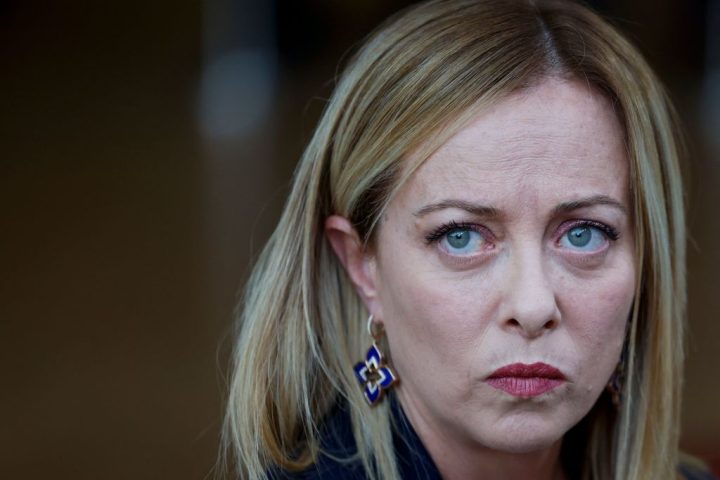
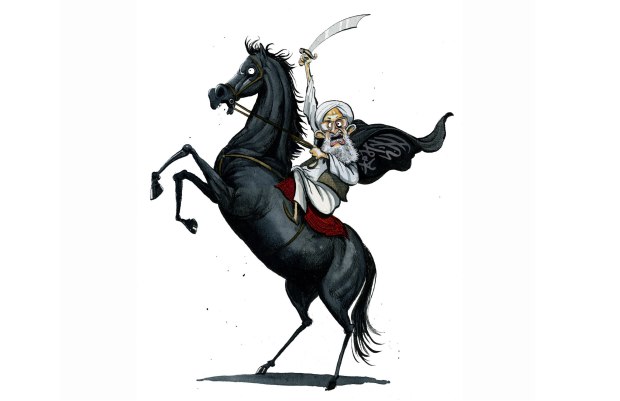
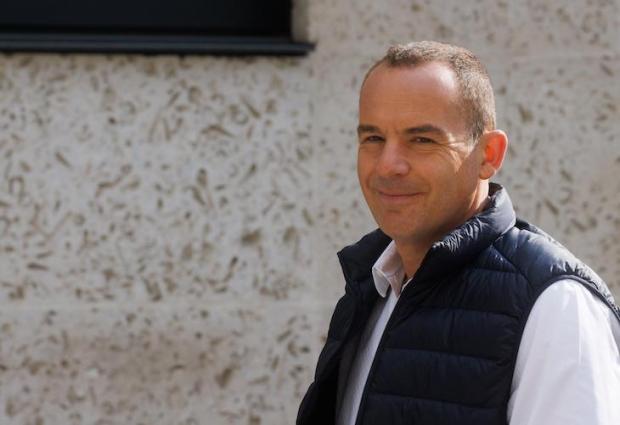


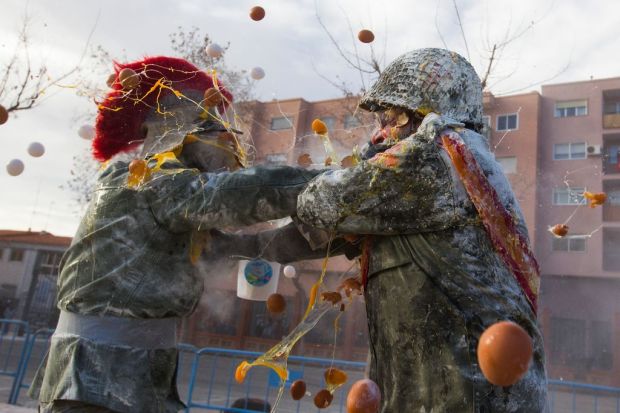
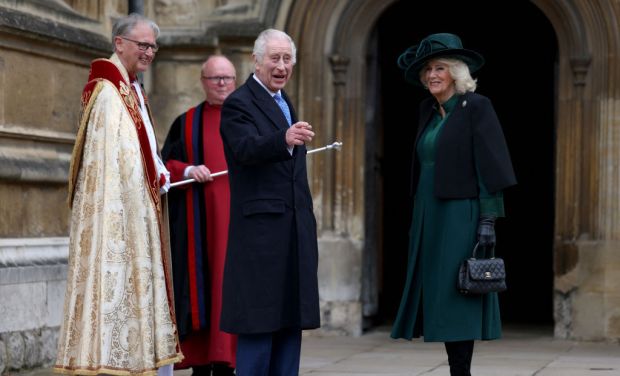












Comments
Don't miss out
Join the conversation with other Spectator Australia readers. Subscribe to leave a comment.
SUBSCRIBEAlready a subscriber? Log in